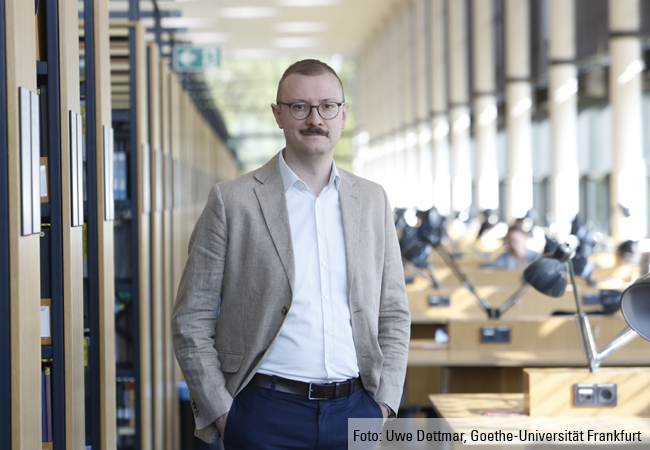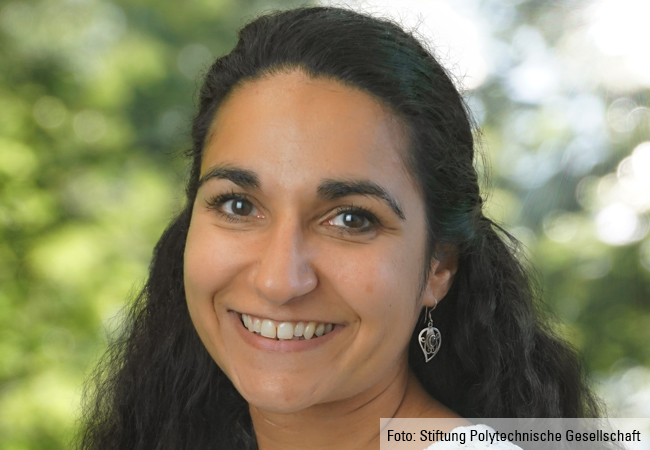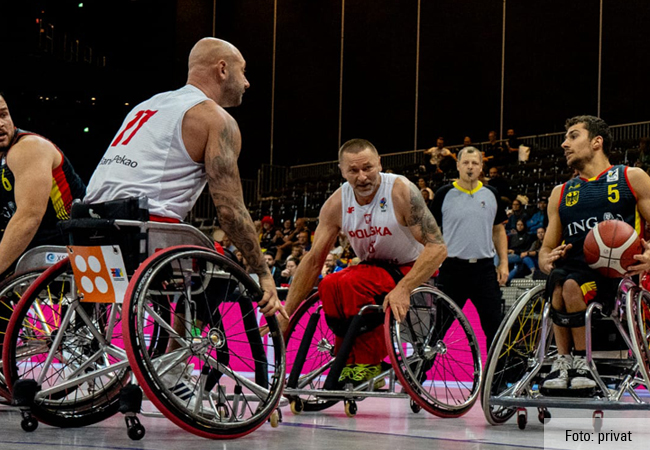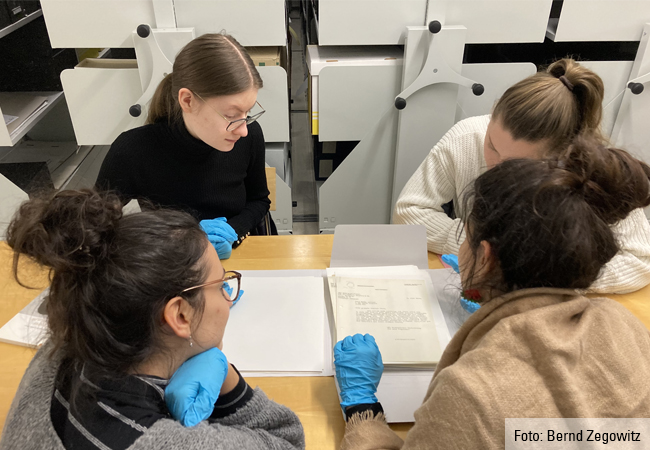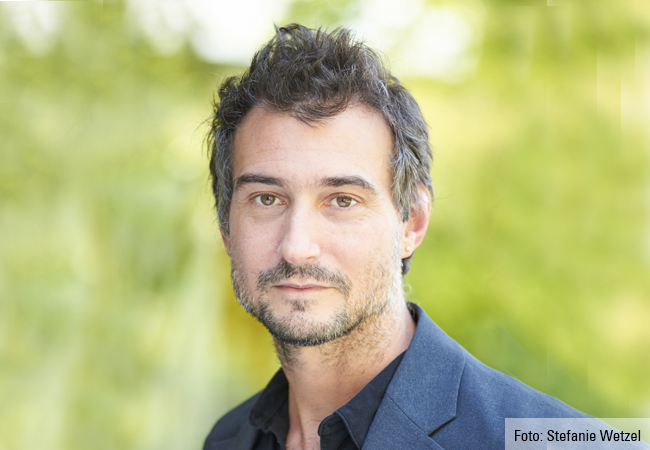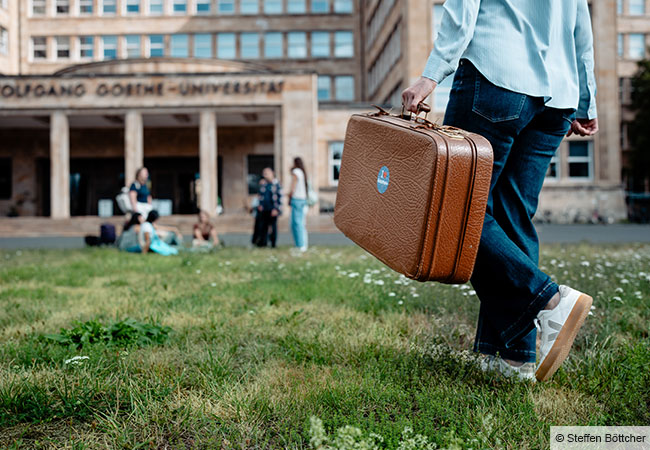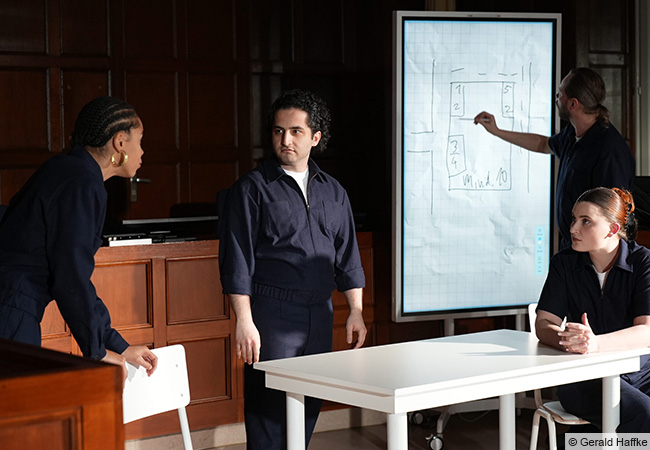Wolfgang Meseth talks about the lecture series “Diversity and Discourse / Antisemitism. Culture of Remembrance. Democracy. / How (un-)political is the University?”, organized in cooperation with the Jewish Academy, which started on May 28.
UniReport: Professor Meseth, how did the idea for this series come about, and what do you personally hope it will achieve?
Wolfgang Meseth: Over recent years, we have repeatedly observed that universities address major social challenges, from the COVID-19 pandemic to displacement, migration and gender identity, all the way to climate change and the war in Ukraine, in two parallel ways, so to speak – as research topics and as topics entailing political demands and positioning. That’s not unusual, especially in the social sciences and humanities, whose objects of study always refer to the society in which they are embedded. As a result, they are unavoidably linked to the discourse on the great political issue of justice. One of the most important challenges in scientific theory is to distinguish – continually and for every single object of study – between scientific and political statements, between facts and values, and between description and prescription. We know there’s no such thing as a science devoid of values, which is precisely why science is tasked with making these distinctions, with relating itself to the normative implications of its objects of study, and drawing public attention to the fact that it makes a difference if statements are phrased scientifically or politically. This is exactly what the lecture series is about: pointing out this difference at a very basic level, substantiating it with scientific theory, and discussing it using the current topics of antisemitism, a culture of remembrance and democracy as examples. My personal hope is that we will rise to the challenge and arrive at distinctions that help us better understand today’s conflicts in their areas of tension.
An analysis of the recent rise in antisemitism – including in Germany – plays a central role in the lecture series. What special challenges do you associate with this topic?
Given the growing antisemitism in Germany in the wake of the indescribable horror at the massacre committed by members of Hamas in southern Israel, the war in Gaza and the large numbers of civilian casualties, the university faces a task that exceeds the above-mentioned challenges it has to confront as a research institution. As an organization, it is also responsible for protecting its members and enabling them to study and work without worrying about potential attacks and/or verbal insults. At the same time, the university finds itself confronted with the challenge of deciding which of the political positions expressed on campus are covered by the freedom of expression, and – where antisemitic and racist positions violate the value of human dignity – what (legal) measures should be applied in response. Events at American, but also German universities, and most recently also on Goethe University’s own campus, have shown that there often is no easy answer to these questions and, more significantly, that there is no defined procedure for a swift, safe and appropriate reaction.
In this context, what is the connection between a culture of remembrance and democracy?
Taken on their own, a culture of remembrance and democracy in essence are political topics. They address fundamental questions about human coexistence and collectively shared values by creating a communicative reference to a supposedly shared past. In Germany, these shared values are closely linked to questions about the singularity and comparability of the Holocaust. This understanding is being shaken by current events and the resulting rapidly changing social constellations of remembering. Eloquent examples of this include transnationalized conflicts in the culture of remembrance, as witnessed in Germany in ongoing debates on the relationship between criticism of antisemitism and criticism of racism, on the relationship between the Holocaust and colonial crimes, but also in relation to right-wing populist utilization of the culture of remembrance, or the conflict in the Middle East. We believe it’s important for this lecture series to draw distinctions and offer interpretations of these transformation processes in the culture of remembrance, in which we ourselves are unavoidably enmeshed. When I say “we”, I am referring to the team at the teaching and research forum on “Erziehung nach Auschwitz” [education after Auschwitz] but in particular the Jewish Academy and its director, Prof. Doron Kiesel. I’m delighted that we’re joining the Jewish Academy to pursue a common path of differentiation and reflection on these urgent tasks.
Questions: Dirk Frank


